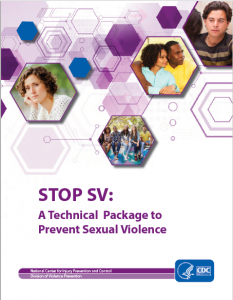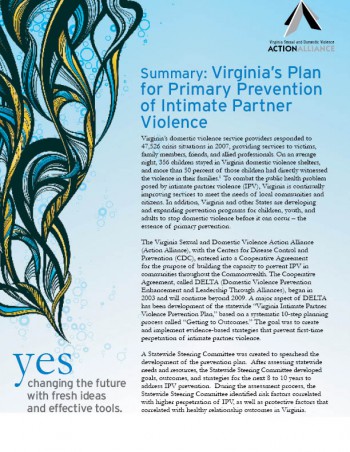Start a Search:
Author: Action Alliance
Social Media Policy Guidelines
Many programs, advocates and survivors use social media to connect with friends, family and colleagues. As an emerging technology and one fraught with many privacy risks, many programs are interested in creating policies that help address how their agency, staff, and survivors use social media. Because social media policies should be specific to the agencies’ goals, use, and concerns, a general social media policy template can often be ineffective.
Originally published by the National Network to End Domestic Violence (NNEDV), this guide is intended to help you think through the questions and issues you should consider when developing your social media policy. Keeping in mind that an organization’s use of social media can differ dramatically from an advocates’ use or a survivors’ use, therefore this guide is divided along those lines.
You can also visit their Technology Safety blog for more information on how to safely engage with survivors online.
State Policy Playbook for Ending Campus Sexual Assault
Know Your IX's State Policy Playbook outlines key reforms that students, advocates, and state policymakers can pursue to support survivors on campus, keep students safe, and end gender-based violence in school. Although Title IX and the Clery Act require schools to take action to address gender-based violence, these federal laws set only a floor for schools' responsibilities to create safe and equitable learning environments. States can and should do more to keep schools from sweeping sexual violence under the rug.
For additional resources, you can visit the Know your IX website here.
STOP SV: A Technical Package to Prevent Sexual Violence

This Centers for Disease Control and Prevention technical package represents a select group of strategies based on the best available evidencde to help communities and states sharpen their focus on prevention activities with the greatest potential to reduce sexual violenced and its consequences. Each strategy includes a rationale, specific approaches, potential outcomes, and evidence.
Summary: Virginia’s Plan for Primary Prevention of Intimate Partner Violence

The Virginia Sexual and Domestic Violence Action Alliance (Action Alliance), with the Centers for Disease Control and Prevention (CDC), entered into a Cooperative Agreement for the purpose of building capacity to prevent IPV in communities throughout the Commonwealth. The Cooperative Agreement, called DELTA (Domestic Violence Prevention Enhancement and Leadership Through Alliances), began in 2003 and continues today.
A major aspect of DELTA has been development of the statewide “Virginia Intimate Partner Violence Prevention Plan,” based on a systematic 10-step planning process called “Getting to Outcomes.” The goal was to create and implement evidence-based strategies that prevent first-time perpetration of intimate partner violence. This document summarizes the 5 goals developed during the planning process.
Published by Virginia Sexual & Domestic Violence Action Alliance. 2009.
4 pages.
Supporting Multilingual and Bicultural Rural Advocates
Rural dual/multi-service advocacy programs that are able to provide culturally and linguistically appropriate services to sexual violence survivors make services for all rural survivors more inclusive and accessible. Multilingual and bicultural advocates are an important part of rural agencies being able to provide these culturally and linguistically appropriate services. A multilingual advocate is someone who can understand and speak more than one language. Often, multilingual advocates are bicultural as well. A bicultural advocate is someone who balances the cultural attitudes and customs of two countries or ethnic groups, usually someone who has moved to the United States from another country or someone whose parents moved to the United States from another country. Advocacy programs often struggle to find, hire, and retain multilingual and bicultural rural advocates. This is why it is important to understand who these advocates are, where they come from, and how we can create a supportive work environment for them. This paper is intended for rural dual/multi-service agencies looking for suggestions on how they can support multilingual and bicultural rural advocates.

